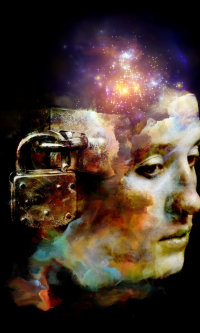Identity is a cultural buzzword that is used so frequently, it has become quite a vague and elusive concept. Descriptively, matters of identity include our likes and dislikes, personality, gender, nationality, prejudices, social groups, characteristics and many other things of personal uniqueness. Whilst all of these things shape our understanding of who we are, they only tell part of the story and the component parts aren’t always interlinked. A lack of identity is often blamed for wrongdoings or emotional difficulties, or even the breakdown of communities in the collective sense. Having an identity and knowing who you are is an important part of connecting with yourself as an individual, and it’s something I feel isn’t always given as much importance as it should.
You first
When we connect with ourselves, we are able to create more meaningful relationships and connections with others. This seems like such a basic concept but it is hugely overlooked. It is considered self-indulgent or selfish to think about ‘you’ before others but it is exactly what is needed in order to respond to your needs and in turn form more valuable connections to the world outside of ‘you’. Without connecting with yourself first, is it truly connection with others that you’re seeking or is it validation?
Have a kinder inner voice
When forming connections with others we show compassion, interest and positive regard in order to achieve the desired result. Take networking for instance, we would hardly form positive connections if we were to rubbish the ideas of another person and treat them with disrespect! But do we do the same when connecting with ourselves? It has almost been drilled into us that being hard on ourselves is the pathway to success; find the flaws, berate yourself for having them and attempt to fix them. This isn’t always a conscious process but it is definitely one that exists, perhaps leading to anxiety, low mood or self-sabotage. Imagine the possibilities instead if the process were far kinder towards ourselves, as it would be towards others. Next time you find yourself in a situation of failure or rejection, consider what you would say to someone else coming to you with the same problem. Speak to yourself with the same kindness as you would them.
Be connected
Knowing who you are enables you to project this confidently to the world and in turn make more meaningful connections. Much like how we form new connections throughout our life, professionally and personally, we also need to remind ourselves of who we are. This doesn’t mean using meditation or mindfulness strategies – though these can be cathartic and useful tools to ground ourselves – it can be as simple as regular check-ins with yourself during the day to recognise how you’re feeling and what you need in that moment. Connecting with our feelings is part of taking responsibility for our own well-being and in turn will open the door to connecting successfully with others. If we lose compassion for ourselves, how can we have compassion for others?
Our passion, creativity, and openness to form positive connections with others are grounded in a strong connection with ourselves. So, ask yourself ‘Who are you?’ and take the time to connect with ‘who you are.’ It’s the most fundamental part of connecting with the beautiful world around you.

